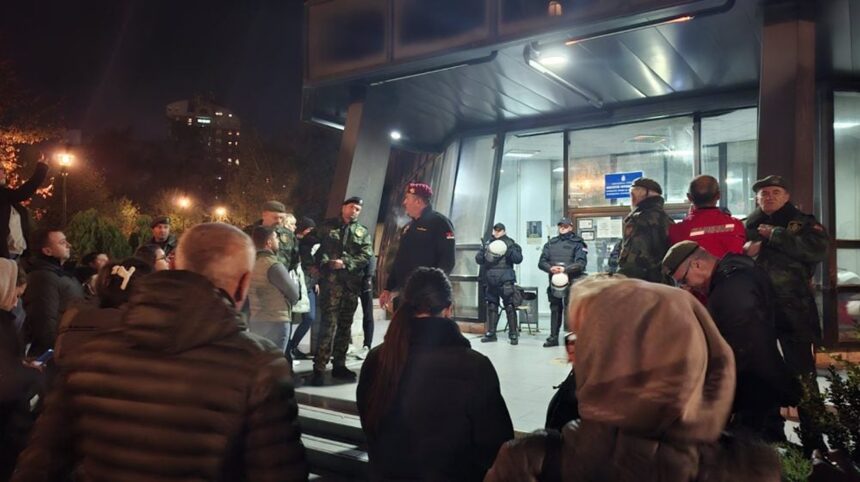For the third consecutive day, citizens have gathered at the intersection of Takovska and Bulevar Kralja Aleksandra in Belgrade to show support for Dijana Hrka, the mother of a young man who died under a falling canopy and who is currently on a hunger strike. Opposite them, government supporters, seemingly orchestrated, stand in front of the Serbian Parliament and Pionirski Park, while heavily armed police act as enforcers, keeping the groups apart. Similar demonstrations have taken place across other cities in Serbia.
Students of the “Uroš Predić” High School in Pančevo have voted to physically block their school in solidarity with Hrka, starting November 5 through November 7. In Novi Sad, a student from the Faculty of Technical Sciences who was violently attacked by a man from Ćaciland last night is now undergoing treatment for head injuries at home, highlighting the escalating climate of intimidation.
Meanwhile, the 16-day marchers who walked to Novi Sad received a festive welcome in front of the State University of Novi Pazar, yet their peaceful activism contrasts starkly with the state’s increasingly repressive approach.
Vladimir Štimac, the renowned Serbian basketball player, appeared in front of the National Assembly after his release earlier today, following his arrest near the RTS building between Sunday and Monday. He directly condemned the government, calling the ruling powers “the biggest traitors and thieves this country has ever had,” urging support for Hrka and the students.
The arrest of truck driver Milomir Jaćimović exemplifies the Serbian authorities’ selective and punitive enforcement. Police Brigade Commander Radoslav Repac stated that Jaćimović was detained for alleged traffic violations, while veterans accompanying him were left free. Yet, dozens of citizens and war veterans gathered in front of the Rakovica police station, demanding his immediate release, as guards blocked access to the entrance.

From the moment Jaćimović left Novi Sad, police subjected him and his supporters to repeated stops and inspections, claiming mismatched codes on his driver’s license and even attempting to force passengers off the bus. Citizens supporting him have consistently resisted these tactics, emphasizing that their solidarity is aimed at defending justice and human dignity, not committing crimes.
Across Serbia, similar peaceful actions have been met with excessive policing: students blocked Ibarska highway near Čačak as a show of support for Hrka, while dozens in Mladenovac blocked Kralja Petar Prvo Street. In all instances, the police presence has been disproportionate and aimed at intimidation rather than maintaining order.
The continued targeting, harassment, and obstruction of citizens like Jaćimović, alongside the suppression of peaceful student protests, underscores the Serbian government’s strategy of using law enforcement to silence dissent and protect a ruling elite intolerant of accountability. The people’s calls for justice, truth, and democratic solidarity persist, yet the state’s actions make clear that resistance is met with force rather than dialogue.







